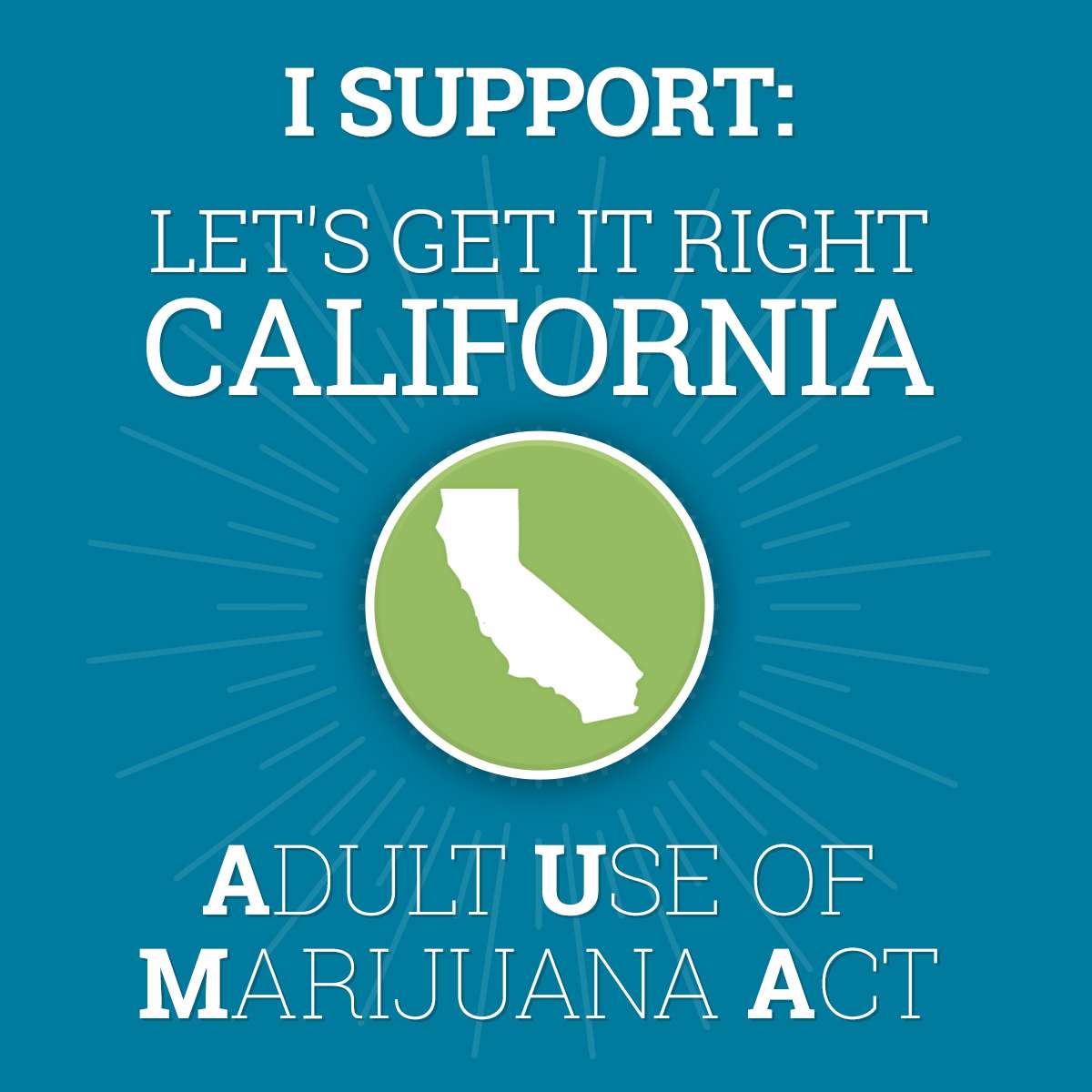Californians Will Decide Whether to Legalize Cannabis This Fall
The Adult Use of Marijuana Act qualifies for the ballot.

Yesterday the Control, Regulate, and Tax Adult Use of Marijuana Act (AUMA) officially qualified for this November's ballot in California. The initiative, whose backers include Lt. Gov. Gavin Newsom and former Facebook president Sean Parker, would belatedly allow recreational use of marijuana in the first state to recognize the plant as a medicine and more than triple the number of Americans who live in jurisdictions that see fit to tolerate cannabis consumption without a doctor's note.
Like the legalization measures approved by voters in Colorado, Washington, Oregon, and Alaska, the AUMA would let adults 21 or older possess up to an ounce of marijuana at a time. Like all of those states except Washington, it also allows sharing (up to an ounce) and home cultivation (up to six plants per household). Unlike the four states that have legalized marijuana so far, the AUMA explicitly allows deliveries to consumers and on-site consumption at businesses licensed for that purpose. Both of those options would be subject to approval by local governments, which also could ban marijuana businesses entirely and regulate (but not ban) home cultivation.
In 2010, the last time California voters considered a marijuana legalization measure, it lost by seven points. According to the Los Angeles Times, "Advocates say the new measure has a better chance because it adds more regulation at the state level rather than letting locals dictate what happens, and comes after the state has approved a regulatory system for medical marijuana growing, transportation and sales." The AUMA is indeed highly prescriptive, weighing in at 30,000 words, 10 times as long as California's 2010 initiative and 50 percent longer than Washington's 2012 initiative, which was itself quite detailed compared to the initiatives in Colorado and Alaska.
It's not clear whether size matters to voters, but the AUMA's supporters are bending over backward to assure the public that they have thought things through. The campaign's official name is Californians to Control, Regulate and Tax Adult Use of Marijuana While Protecting Children, and its slogan is "Let's Get It Right, California!" In this case, getting it right means "the toughest regulations of any adult-use marijuana proposal submitted to date," including a constitutionally questionable ban on many forms of advertising, detailed packaging and labeling requirements, and pretty harsh treatment for possessing more than an ounce, which would be a misdemeanor punishable by a $500 fine and up to six months in jail. Marijuana would be taxed twice: $9.25 per ounce collected from growers plus 15 percent of the retail price. The initiative requires state regulators to begin licensing producers and distributors by January 1, 2018, giving preference to existing medical marijuana businesses.
Organizations supporting the AUMA include the Drug Policy Alliance, the Marijuana Policy Project, the National Organization for the Reform of Marijuana Laws, Law Enforcement Against Prohibition, the California Cannabis Industry Association, the California NAACP, and the California Medical Association. As in 2010, the opposition, known as the Coalition for Responsible Drug Policies, is led by law enforcement groups such as the California Police Chiefs Association and the California State Sheriffs' Association. It has raised about $125,000 so far, much less than the $3.7 million in the initiative campaign's war chest.
Another anti-AUMA group, Stop Pot 2016, may be actively undermining the prohibitionist case with its outlandish claims. The group's president, Roger Morgan, recently told Reason TV "almost all of the mass murders we've had in recent years" were caused by marijuana.
Support for marijuana legalization has grown since 2010 nationwide and in California. This year the Public Policy Institute of California found that 55 percent of California adults think pot should be legal, up from 47 percent in September 2010. Support was even higher among likely voters, 60 percent of whom said marijuana should be legalized. A February poll by Probolsky Research likewise found that 60 percent of California voters want to "legalize marijuana for recreational use."
In addition to California, legalization initiatives have either qualified for this year's ballot or are expected to do so in Nevada, Maine, Massachusetts, and Arizona.


Show Comments (22)